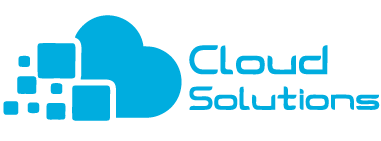There are instances when you require help on your asset management aspects. You may avail this from a personal accountant or you may try to do this on your own. Salesforce training in Chennai comes to your aid and provides you with resources to implement these functions with the help of a cloud based software. You can use it to record financial transactions and also for basic performance evaluation.
Understanding Cloud
Cloud computing allows individuals or organizations to use remotely located ,shared resources for storing ,processing and recording data, especially when the problems are complicated to deal with in any stand along machine. It enables Saas so that you can access the software on a remote server and use it without purchasing the same. Internet connectivity enables data access and transmission for multiple users. Microsoft, Google or Amazon are some specialist cloud computing providers who provide the required software.
Types of Cloud Computing Models
You have a public as well as private model of cloud computing. Let’s look into each in detail.
Public cloud
Public cloud is cloud computing in the purest form. As the infra structure is already set up, it is ready and available to be deployed. It is kind of a self service where you can choose what you require. It is also scalable. The cloud providers make metering available so that you can be sure you are getting your money’s worth.
Benefits
Public cloud providers deliver their services to the public and also to large organizations. The budget of the receiver is not an issue for them. This benefits many start up organizations as well. They help customers who cannot afford own servers by facilitating multiple computing instances. This in turn makes it budget friendly for the users. The costs of owning a dedicated server and computing resources are highly reduced. There is also no capital outlay. Public cloud customers will not need to have any physical infrastructure at their facility as the main server is located at the vendor’s or provider’s premises. Due to its high flexibility, public cloud can be easily mapped according to demand. This also provides unlimited capacity and allows organizations to use it as and when they want.
Now let’s move on to know what Private cloud computing is Private cloud
Certain small industries benefit more when they adopt private cloud. The main difference between public and private clouds is that in private, the hardware and software is for the single industry.This does not mean that multiple machines cannot be used. Multiple users are still allowed, however it is managed by a single client or given to a cloud computing provider. It could also be at an authorized third party’s place. The main combinations followed by private cloud are
On-premise, managed by the third party
Off-premise, managed by the third party
Off-premise, managed by the owner/ client
On-premise, managed by the owner/client
What are the security concerns?
Security concerns are of utmost importance for every industry. Cyber security is essential as the data of many clients is at stake. Highly sensitive data which involve both personal as well as financial data is being handled in huge quantities. Modern data points or centers have a level of sophisticated systems which ensure extremely secure measures to protect online data .
However this also requires you set aside a considerable amount for installing the security measures. Not all individuals or small industries will eb able ot afford this kind of money for ensuring the security of sensitive data. These instances call for engaging a cloud provider who promises more security and is easier to handle.
Cloud Vision
Cloud vision is a venture set to enable the availability of enterprise level technology to all businesses alike. You delegate the installation, maintanence aspects of the financial system to another third party expert who saves you capital expenditure and at the same time keeps your data secure and protected. This takes away a huge burden from your responsibilities and enables focusing on the centre core of your business without getting diverted by financial issues.
As you can see, using cloud computation for managing your financial matters has been proved to b more beneficial than having to deal with it single handedly.




